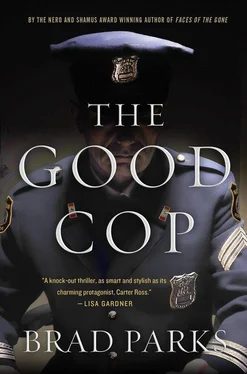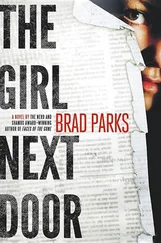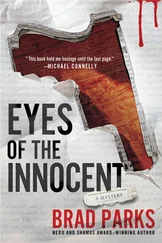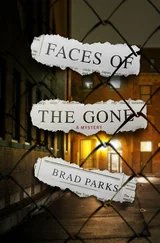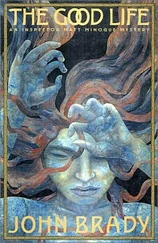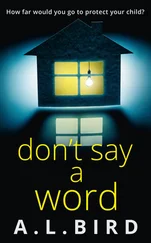Brad Parks - The Good Cop
Здесь есть возможность читать онлайн «Brad Parks - The Good Cop» весь текст электронной книги совершенно бесплатно (целиком полную версию без сокращений). В некоторых случаях можно слушать аудио, скачать через торрент в формате fb2 и присутствует краткое содержание. Год выпуска: 2013, ISBN: 2013, Издательство: Minotaur Books, Жанр: Триллер, на английском языке. Описание произведения, (предисловие) а так же отзывы посетителей доступны на портале библиотеки ЛибКат.
- Название:The Good Cop
- Автор:
- Издательство:Minotaur Books
- Жанр:
- Год:2013
- ISBN:9781250005526
- Рейтинг книги:3 / 5. Голосов: 1
-
Избранное:Добавить в избранное
- Отзывы:
-
Ваша оценка:
- 60
- 1
- 2
- 3
- 4
- 5
The Good Cop: краткое содержание, описание и аннотация
Предлагаем к чтению аннотацию, описание, краткое содержание или предисловие (зависит от того, что написал сам автор книги «The Good Cop»). Если вы не нашли необходимую информацию о книге — напишите в комментариях, мы постараемся отыскать её.
The Good Cop — читать онлайн бесплатно полную книгу (весь текст) целиком
Ниже представлен текст книги, разбитый по страницам. Система сохранения места последней прочитанной страницы, позволяет с удобством читать онлайн бесплатно книгу «The Good Cop», без необходимости каждый раз заново искать на чём Вы остановились. Поставьте закладку, и сможете в любой момент перейти на страницу, на которой закончили чтение.
Интервал:
Закладка:
Brad Parks
The Good Cop
The exchange started with nothing more sinister than an ad on Craigslist.
It was a posting created by an outfit that called itself Red Dot Enterprises and placed in the jobs section of the Hampton Roads Craigslist, under the heading of security. The link said, simply, “Security Guard Wanted.” The following came one click later:
Competitive pay for limited duration work.
No experience necessary.
No HS diploma or GED needed.
Must be able to pass criminal background check.
Must have own vehicle.
Current State of Virginia concealed carry permit required.
To John Bristow, it sounded like a good deal. He was an ex-marine who had kept keep his nose clean and an avid hunter who had gotten a carry permit shortly after mustering out of the service years earlier.
Most of all, he had child support, a landlord who was getting tired of partial payments, and a car that was being held together by rust and duct tape. He needed a job. Any job would do. He had been laid off during the depths of the Great Recession four years earlier and none of the employment he had found since that time had come close to replacing his previous income. The tips at T.G.I. Friday’s just weren’t that good.
So he answered the ad from Red Dot Enterprises, clicking on the “Reply to” link supplied. He wrote a note, saying he met all the qualifications. He heard back quickly.
Soon, there was an exchange of phone calls, always from blocked numbers. Bristow could guess it was something shady. He talked to a guy who even sounded shady on the phone, a black guy from up north who asked a lot of questions but gave few answers.
Bristow learned it was more of a onetime assignment than a steady job. But the money was good. And easy. The guy on the phone seemed mostly concerned about Bristow’s discretion, and kept reminding him he couldn’t discuss the work he would do-not with his wife, his girlfriend, his priest, or his rabbi. No one.
Bristow asked right away: Was Red Dot Enterprises involved in drugs? Because he wasn’t interested in doing anything with drugs. He wasn’t some junkie, and he sure as hell wasn’t going to work for some scumbag dealer.
No, he was told. No drugs.
So what was it? When the guy finally got around to saying it, Bristow was relieved. It wasn’t drugs. Or trafficking in whores or illegals or any of the other possibilities Bristow had been pondering.
It was just guns. They wanted him to buy some guns. They were going to pay him for the guns, pay him generously for his time, and then leave him alone. It was one day’s work-less than that, actually. Yet it would pay him better than a month of working nights at Friday’s.
Was he helping to arm an insurrection against the federal government? Procure firearms for ex-cons who couldn’t buy their own? Enable some massive shooting spree? Bristow didn’t particularly care.
Whatever someone did with those guns, that wasn’t on him.
CHAPTER 1
Among the many reasons I enjoy being a newspaper reporter-not the least of which are the freedom, the fun, and the constitutionally protected right to announce when people are acting like idiots-one of the small-but-important pleasures is what I’m doing each morning at eight thirty-eight.
At 8:38 A.M., I imagine most gainfully employed, industrious members of our society are already enjoined in the struggle that is their daily grind. They have attended to their grooming needs, squeezed themselves into their workaday uniforms, rushed through a meal that puts the “fast” in “breakfast,” and made the necessary concessions to their caffeine addictions.
At 8:38 A.M., they are inhaling the carbon-tinged exhaust fumes from the car in front of them on the Garden State Parkway; or they are recovering from the latest skirmish in the ongoing Battle of No, You Cannot Wear That to School; or they are checking their e-mails, looking at their schedules, and generally girding themselves for all that is to come.
Me?
At 8:38 A.M., I do solemnly swear that I, Carter Ross, am asleep.
In my profession, this is not necessarily a sign of sloth. Editors typically have established hours, but reporters adapt their schedules to the demands of their beat. Courthouse reporters are at the whim of their trial; education reporters learn to make calls during the school day; sports reporters, the vampires of the journalism world, primarily work at night. As an investigative reporter, I don’t have a beat per se. No one expects to see me in the office at any particular time of the day, and certainly not at 8:38 A.M., when most self-respecting American newsrooms are devoid of all but the barest minimum of personnel. Anywhere from ten to eleven is considered a more fashionable arrival time. So I pretty much get up when I feel like it. I have a need to set an alarm maybe five times a year.
I often make up for it on the other end because while my day may come in like a lamb, it often goes out like a lion, with sources and editors and deadline all screaming at me simultaneously. My employer, the Newark Eagle-Examiner -New Jersey’s largest and most tenacious disseminator of responsibly vetted information-always gets its pound of flesh out of me.
Nevertheless, if I do happen to wake up when there is an unsightly number (like an eight or, God forbid, a seven) leading the digital clock by my bedside, I take pride in rolling over and snoozing until I see a more proper number (like a nine or a ten). The main characters in my life-be it my colleagues, my friends, or Deadline, the cat who reliably joins me in my morning slumber-know this about me.
So it came as something of a surprise when I became aware that my landline, the number almost no one used anymore, was ringing one sunless Monday morning in March at exactly 8:38 A.M.
“Hello?” I said, sounding a bit guttural.
“Carter, it’s Katie Mossman.”
Katie was one of the editors on what was formally called the Nonstop News Desk, which had been created a few years back to feed the insatiable content beast that is our Web site. Informally, we reporters called it the All-Slop News Desk-“the Slop” for short-because that’s about what we shoveled into it.
“What’s up, Katie?”
“We got a dead Newark cop,” she replied, and I immediately sat up in bed and grabbed a notepad.
For as much as law enforcement and media sometimes find themselves at odds, we in the Fourth Estate recognize that those who are sworn to uphold the law not only perform a vital function for public safety but represent all of us in doing it. An attack on one of their number is an attack on everyone. Police officers who die in the line of duty are heroes and are treated as such. In other words, dead cops equal big news.
“Okay. What do you need from me?”
“I don’t know. I don’t think we have a game plan yet. I just called Tina to tell her about it and she said I should call you and, quote, ‘Get his sorry ass out of bed.’”
As the assistant managing editor for local news, Tina Thompson was my boss. She and I also had a fairly complex, on-and-off relationship (currently: off). In both roles, she was not especially shy about expressing her needs.
“You can tell her it’s out,” I said. “What’s this cop’s name?”
“From what we’re hearing, it’s Darius Kipps. K-I-P-P-S. Detective Sergeant Darius Kipps.”
The name meant nothing to me. While I wasn’t strictly a cops reporter, I had a decent number of contacts in the Newark Police Department. Still, there were more than a thousand cops on the force and I knew only a fraction of them.
Читать дальшеИнтервал:
Закладка:
Похожие книги на «The Good Cop»
Представляем Вашему вниманию похожие книги на «The Good Cop» списком для выбора. Мы отобрали схожую по названию и смыслу литературу в надежде предоставить читателям больше вариантов отыскать новые, интересные, ещё непрочитанные произведения.
Обсуждение, отзывы о книге «The Good Cop» и просто собственные мнения читателей. Оставьте ваши комментарии, напишите, что Вы думаете о произведении, его смысле или главных героях. Укажите что конкретно понравилось, а что нет, и почему Вы так считаете.
